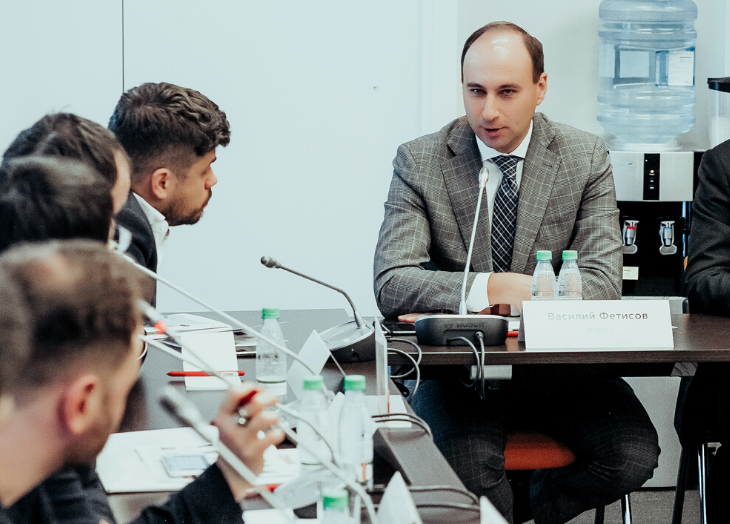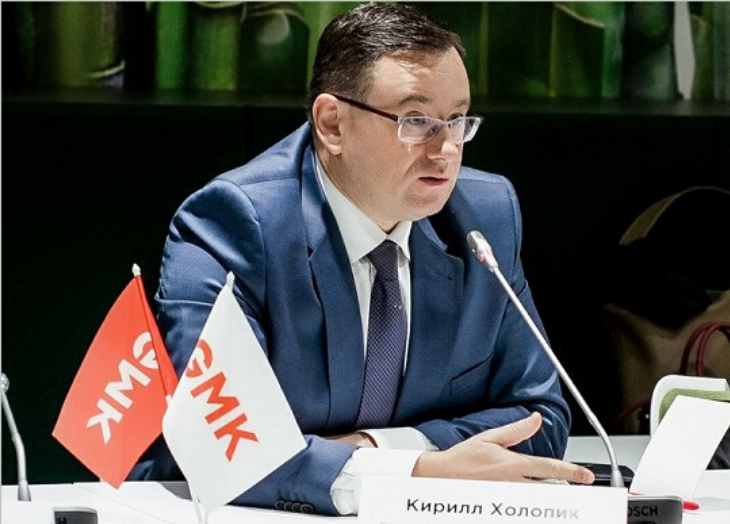Black Swan. Real Estate Developers Speak on Ruble Depreciation
Comments, Forecasts, Estimates

As Anton Tabakh, Managing Director of Expert RA for Macroeconomic Analysis and Forecasting, joked at GMKTalks in January: "Forecasts of economists exist to make astrologers feel more confident." The real estate market did not expect any exotic 'feathered guests' in early March. Nevertheless, having woken up on the morning of March 9 with oil costing $31 and forecast exchange rates of 72 rubles per dollar and 85 rubles per euro, real estate developers found themselves in a new reality that would likely require a total revision of financial models.
What is going to happen in the real estate market in the nearest future? What changes should developers and ordinary buyers of property prepare for?
One of the first comments was received from Iskander Yusupov, Commercial Director of Unistroy (Kazan):
"The negative situation in the markets, incredible as it may seem, can positively affect the one of real estate. Trying to save money, people often rely on the most proven and understandable recipe: buying property. We registered this phenomenon in 2014 when the currency sharply appreciated and customers ran to sales offices in order to at least protect their savings from devaluation.
However, after such panic buying a 'hangover' usually occurs, we also observed it in 2015. Now real estate developers need to have financial stability in order to go through the recession that will follow, especially for the facilities without project financing.
At the same time, loans are also not a cure-all solution: if there are no sales, there will be no funds on escrow accounts, then, first, the developer will have a maximum loan rate, which means that profitability will suffer, and secondly, if there are no sales at all, the bank may suspend construction financing.
The consequences, I think, will become notable over the next week: if there is increased demand, this will be a sign of frenzy amid the decline in the national currency. Almost all of our facilities are already being built using the model of project financing, so we don't worry very much."
As for possible effects related to rising construction costs and housing prices, we talked to Vasily Fetisov, Commercial Director of Moscow Territorial Directorate of Etalon Group:
"Although significant steps in import substitution were made in 2015–2018, a considerable share of building materials and technologies (especially in the segment of high-quality finishing materials and MEP equipment) are still imported. For this reason, construction costs, especially in new projects of premium and higher classes, may increase.
Will developers increase housing prices? Over the past two years, prices have been rising, and now there is a relative balance of prices and demand in the market. Any increase in prices in the medium term will entail a reduction in the number of deals. A one-time 10% growth can now reduce the number of buyers by 20-25%, so real estate developers should be very careful and not overestimate their projects in order to prevent the outflow of potential buyers from the market."
Dmitry Volkov, Managing Director of Samolet Group (Moscow), looks to the future with optimism:
"The real estate market has already experienced more than one crisis. The last year was not easy for the market even without any crises. Therefore, real estate developers technically live in a state of total control of all indicators, continuous work on efficiency, and search for ways to maintain the stability and profitability of their businesses. The industry has matured extensive experience in maneuvering in unstable situations, modeling scenarios, and quickly adapting to new realities. Even if we feel any influence of fluctuations in exchange rates, it will not be today or tomorrow. The construction business is very place-based: almost the entire resource base is domestic, contracts for supplies of materials are long-term. For now, we do not see any crisis, sales correspond to the plans."
A pragmatic estimate of the situation was received from Dmitry Gontar, Deputy General Director of Monolit Group (Crimea):
"The market is already a bit low and is continuing to lose ground further in terms of demand. Due to the price changes, apparently not for the better, the bulk of sales will go from the standard segment to the economy one. In turn, this will lead to a significant deterioration in product characteristics, which is generally bad.
As for the crises, they open up new opportunities for growth. My opinion is that the current situation is a growth zone for real estate developers operating in the economy segment. Everything can be explained by the line of thinking that purchasing power is declining and the amount of money people have at disposal is much less than what they need to buy housing of standard or comfort classes. Thus, the main share of demand will be soon shifted to the economy category.
The current situation in the Crimean market shows a reduction in demand for the main product: apartments of the economy category. What are the advantages for us here? I think that this situation is positive for any business in that it is a period when we need to carefully and thoughtfully plan our expenses."
There are those who react to the events more emotionally. Andrey Vasilkov, Marketing Director of STRANA Development (Tyumen), expressed himself very briefly on his Facebook page on March 9:

Many real estate developers say they are already familiar with this situation and consider the new crisis a repetition of the events of December 2014.

A sharp drop in oil prices and a commensurate surge in the value of the dollar and the euro are, of course, a shock for the economy driven by incomes from exports of commodities. However, experts take notice of the fact that it will be possible to assess the situation more or less reasonably only after the main 'turbulence' is over, when prices are set at a more or less stable level and, maybe the most important thing, when the market regulators express their position.
Thus, Ildar Khusainov, Director of Etazhi Federal Real Estate Company, invites to wait for the Central Bank’s reaction, as its direction will give the necessary signals to the real estate market:
"In my opinion, everything will be decided at the Central Bank's meeting on March 20, when the decision will be made on the key interest rate. It is difficult to predict which policy the government will adopt this time, and a lot will depend exactly on it. Because the market will be strongly affected by mortgage rates in the first place."
Kirill Kholopik, General Director of the Unified Register of Real Estate Developers (a web portal), focuses on the risks of the growth in rates:
"For real estate developers, another thing is important: to avoid the collapse following the key rate raise, since it is then followed by the increase in mortgage rates for buyers and loan interest rates for developers. Such risks exist, but they are not very high.
Let me remind you that in early 2016, the exchange rate was also 75 rubles per dollar, while inflation in that year amounted to only 5.4%.
I do not exclude the positive impact of the ruble depreciation on housing construction as well. Those buyers who are waiting for a further mortgage rate cut will likely hurry to make a purchase tomorrow."
Anton Tabakh (Expert RA) proposes to consider the situation more globally, without considering the current crisis as an exclusively local phenomenon:
"When evaluating the prospects of the financial situation in the world and in Russia, it is necessary to separate the global picture and the domestic situation. If global markets get the expected monetary support and a possible tax cut in the United States, then we will see the recovery of oil markets in the nearest future with the prices stabilizing above $40 per barrel. The further course of events depends on whether the fight against the epidemic will be successful (or, more precisely, on how that success will be assessed by the population and governments) as well as on the ability of OPEC and Russia to restore their agreements.
The quick and coordinated reaction of the Central Bank and the Ministry of Finance shows that the experience and mistakes of 2014 and 2018 were taken into account. The Bank of Russia has left the market for at least a month and will not buy foreign currency for the NWF, while the Ministry of Finance is ready to even sell reserves at stably low prices. The reserves are huge: the NWF has liquid assets worth 10.1 trillion rubles – at the exchange rate as of March 1. So, the margin of safety is high, and the weakening ruble even increases the 'operational stocks' of the financial authorities. The outflow of non-residents with federal loan bonds is very likely, although its scale will not be enormous.
The ruble depreciation will consolidate if oil prices are steadily below $43 per barrel. The debt level of corporations and banks is minimum, which reduces the non-speculative demand for foreign currency. Moreover, the ruble fluctuations now affect inflation more slowly 'thanks' to sanctions, various embargoes, and import substitution.
Amid another expected cut of rates by the Federal Reserve System and expansion of liquidity by other central banks, an increase in the key interest rate by the Central Bank of Russia on March 20 is unlikely, but its reduction is out of question as well at least until the end of April. In the longer run, upon the minimal stabilization of the markets and amid inflation of 2.4%, a rate cut is inevitable anyway: the monetary policy is currently too tight, which is just not needed with the floating exchange rate.
If the rates are not maintained artificially, then, in the absence of new 'black swans', they will return to more adequate values: let's remember that the dollar cost 69 rubles back at the end of 2018. Now the budget is run without deficit with the price of about 2700 rubles per barrel (3600 in 2014), and this unscientific but rather well-working estimate can serve as a benchmark for the minimally comfortable level of oil prices and the ruble exchange rate.
In a panic, demand for real estate is likely to increase, mortgages at least will not become more expensive, the crisis will be flushed with government money. It is right to be cautious, but it is the wrong moment to make panic."
What should real estate developers do in this situation? What actions will be reasonable and sensible in the new turbulence zone? Sergey Razuvayev, Director of GMK Consulting Agency, also assessed the situation:
"We sometimes name successful clients of GMK 'children of the crisis'. The results of our 'crisis-ridden' projects have always been very interesting. And just yesterday, we all learned that a new interesting period is around the corner.
I can say that the drop in the ruble exchange rate, of course, will immediately or gradually reduce the purchasing power. However, it is not what should scare real estate developers. We all live in a new system of project financing, and eventual fluctuations in the key rate will affect not only the mortgages, as it could have happened earlier, but also the main thing for developers, i.e. the interest rate of project lending. It means that if the Central Bank decides to increase the key rate, the consequences for developers will be very, very serious.
There are moments of uncertainty ahead. The government will have to create some substitution or compensation tools: this will take some time, and there is no clarity about it. Will the oil prices consolidate at satisfactory indices for Russia? Will the exchange rate stabilize? This all is unknown. But there are some things that a real estate developer can definitely do for itself and for its customers even in this uncertainty.
I'm talking about the idea you need to convey to customers, whatever it takes: if you want to buy an apartment now, then there cannot be a better moment do to this.
I’m talking particularly about those who are actively looking for an apartment at the moment and twist in the wind. In calm times, such people would hang around the market for up to half a year, but right now developers should be capable of quickly mobilizing them and motivating to buy. It is the way to collect the maximum amount of funds under buyer-funded development agreements or on escrow accounts in order to ensure a flow at the moment.
For our people, an apartment is capital. The statistics show that up to 90% of people buy it for themselves. Besides that, bank deposit rates are now low, so the latest trend is that people are 'redeploying' money from deposits to real estate. You can form a simple line of thinking for your customers based on this, for example: "Keep money in square meters" or "We fix prices until the end of March."
On top of all this, it is important to focus on the uncertainty that is high now and that if the basic parameters of the key rate are revised, mortgage rates will also increase, so all pre-approved mortgage loans at about 8% will very soon grow to 12%, 17% and even more. We already went through all this in 2014.
Any available channels of communication with customers can be used. Over and above, it's worth intensifying work with the agent panel since agents interact with people directly. As an option, you can raise their remuneration for deals only in March. And also perform a series of actions: phone round those who have been thinking for a long time or are waiting for a favorable moment for a trade-in deal.
In my opinion, it is important that 'suspended' customers at any stage of any scenario clearly hear: either you buy an apartment on these conditions from us, or tomorrow you will find yourself tête-à-tête with a not very clear situation, which even we cannot assess. And it is adventitious to them in the first place."










